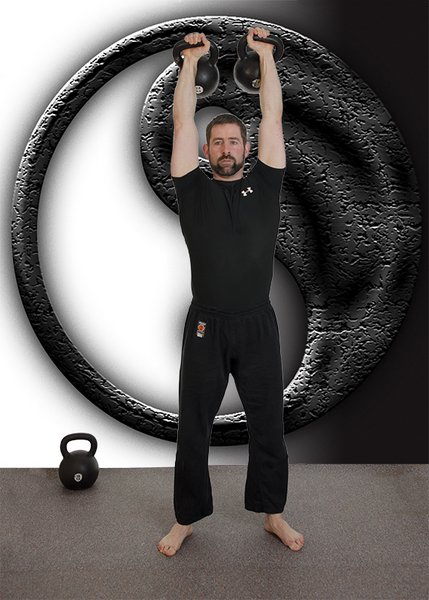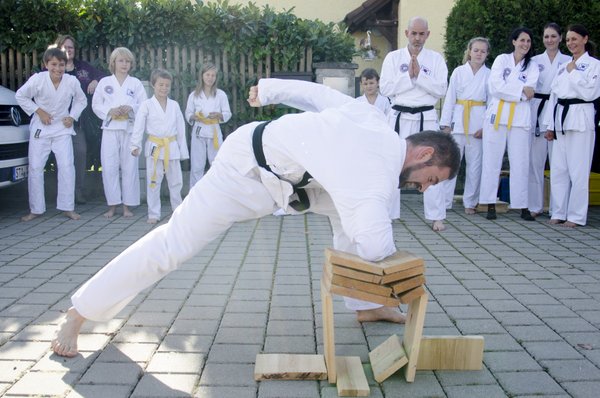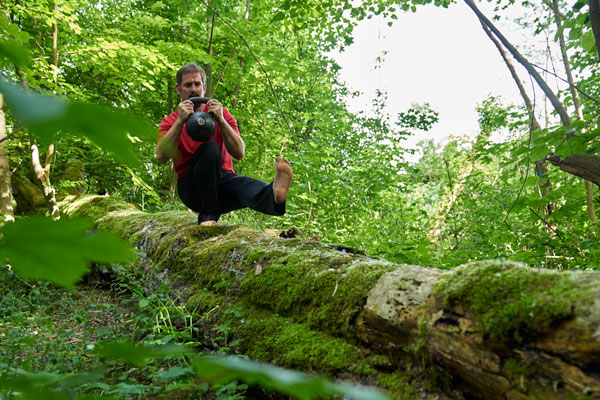
Whenever I use the phrase “Hardstyle kettlebell”, I find it funny that it is very descriptive if you know the style of training, but at the same time it’s very confusing for someone new to kettlebell training.
An outsider might infer that Hardstyle is a very harsh and intense style of kettlebell training. But, this is not the case. Obviously, any kettlebell work is relatively intense—and the only limit to that intensity is your own physical ability. But, that’s not the point of Hardstyle.
Hardstyle doesn’t defined how hard we train, instead it describes how hard we move. How hard a given workout seems will depend on the volume (total reps), density (time) and intensity (weight or variation) you choose. On the other hand, how hard you execute every single movement does not describe the overall intensity of your training session. A single Hardstyle swing feels more intense than its competition style counterpart, but that still does not depict the whole training session. In the Hardstyle community, we frequently joke about “being lazy” since we do fewer reps harder instead of more reps with lower intensity.
There Are No Hardstyle Kettlebell Competitions…
With Hardstyle technique, it is difficult to compare one athlete with another. For example, performing 100 true Hardstyle swings is a challenging workout, while doing the same number of 90% less than Hardstyle swings will feel much easier. An athlete using competition style technique might choose the same 100 swings as warm-up because his movements are intended to conserve energy.
Even in our well known and feared RKC snatch test, we do not ask for 100 true Hardstyle reps. This is not because it’s nearly impossible to work at the required pace with 100 % pure Hardstyle technique, but because it takes a very experienced referee to see the difference between 90 % snatches and 100 % snatches. The test is still hard enough—believe me. You can’t “win” the snatch test, it’s pass or fail only.
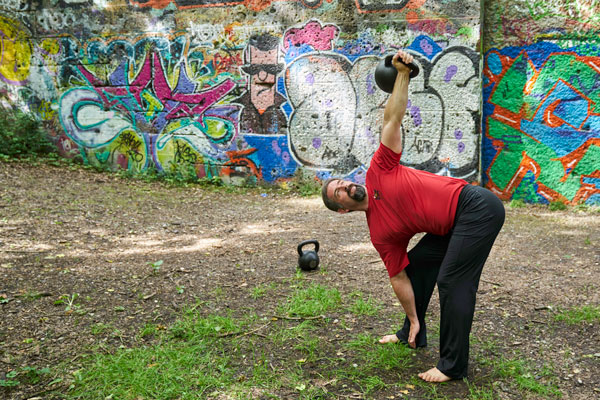
Why I Like Hardstyle Kettlebell Training
As Max Shank regularly says, “We are all unique little snowflakes and therefore everyone is different.” Some people can work with the same three exercises for years and make incredible progress, while others need to switch their program every four weeks to stay on track. Some people will need a clearly defined goal to work towards, while others work like mules day in and day out. Competitions can be a strong motivation for training, but that same motivation can come at a high price. Whenever you compare yourself with others (who naturally may be younger, bigger, faster, etc.) you will need to overcome your own limitations to defeat them. It is one thing to move past your limits through dedicated training as opposed to working past them by sheer will, or guts to win a competition. It all gets easier with practice, but you must pay your dues. Considering that most elite athletes quit competing before age thirty, the physical price must be high.
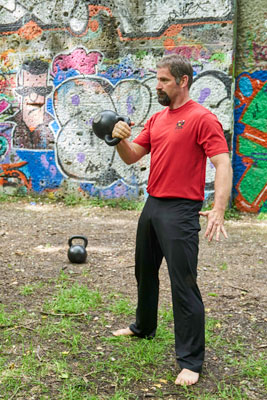 In my opinion, it is wiser to train in a way that gradually builds you up over time. Work for your health while prepare yourself for whatever might come.
In my opinion, it is wiser to train in a way that gradually builds you up over time. Work for your health while prepare yourself for whatever might come.
Are You Against All Competitions?
No. If you are motivated by competition, then you should definitely make that personality trait work for you. And even if you don’t like competing, it is still a good idea to try it now and then to gain a better understanding of your strengths and weaknesses. But don’t compete in your training. Hardstyle kettlebell training can provide you with the physical and mental fortitude to succeed in almost any athletic discipline. Use it to prepare yourself for competing in your chosen sport. Obviously, you will also need to train the skills of your sport, but be careful not to mix skill training and physical preparedness. To improve your skills, you should always try to train when you are relatively fresh. When physical preparedness is the goal, you will need more load to force your body to adapt.
Have fun, train safely, and compete wisely!
***
RKC Team Leader Florian Kiendl is a second degree black belt in Tae Kwon Do and runs a Martial Arts Gym in a small town close to Munich (Germany). He made it his mission to help his students to improve their movement and overall health. In his search for ways to overcome the movement restrictions of his students (and his own) he found the RKC and now works together with Master RKC Robert Rimoczi and others to help as many people as possible to gain back their Strength and Agility. He writes a regular Blog at blog.kettlebellgermany.de and offers workshops all over Germany teaching the RKC kettlebell exercises: KettlebellGermany.de. If you have questions or comments on the article feel free to email him at florian@kettlebellgermany.de.
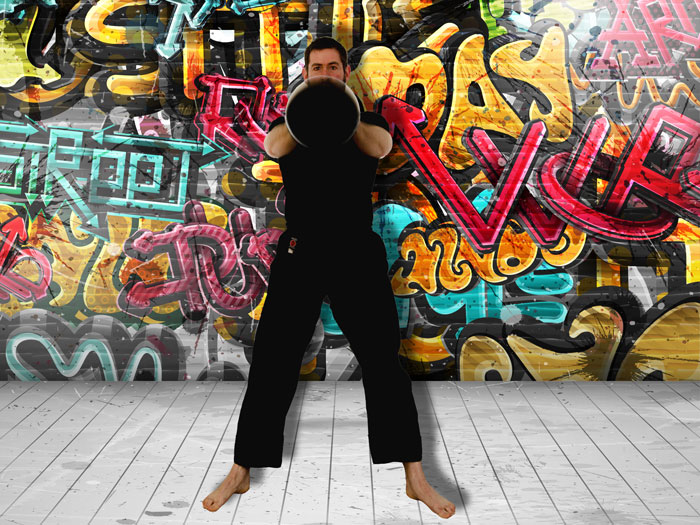
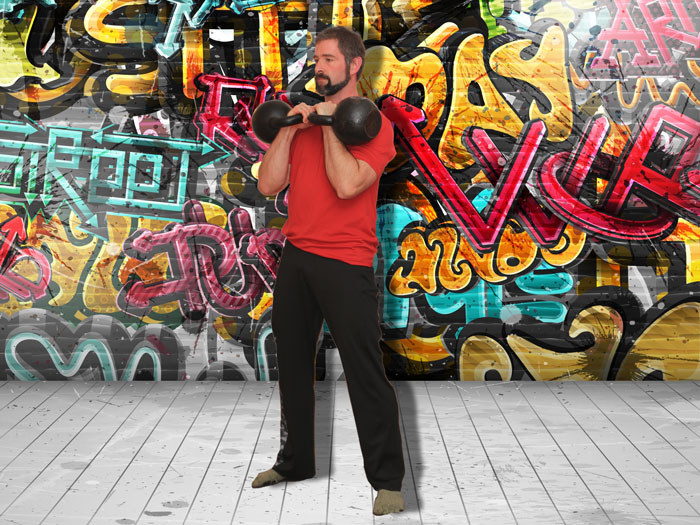
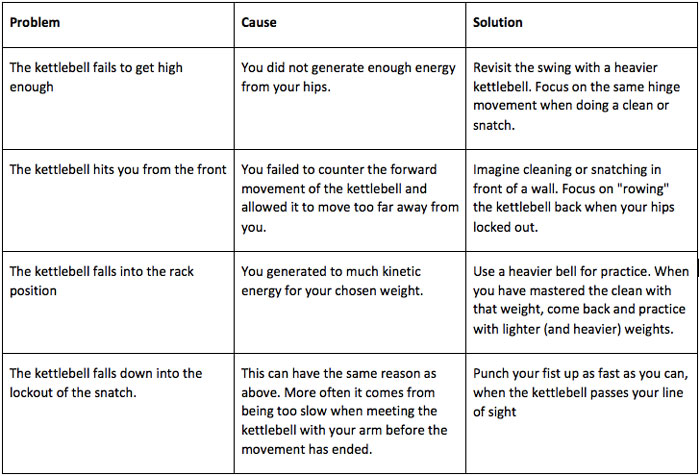
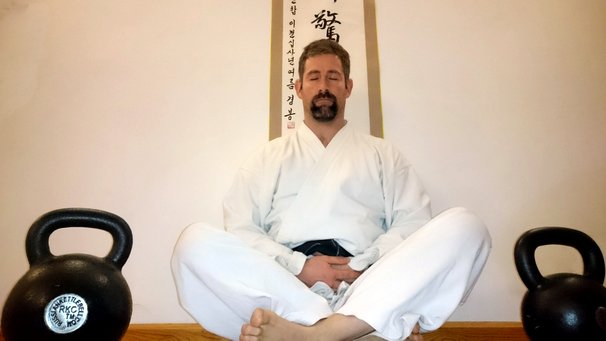
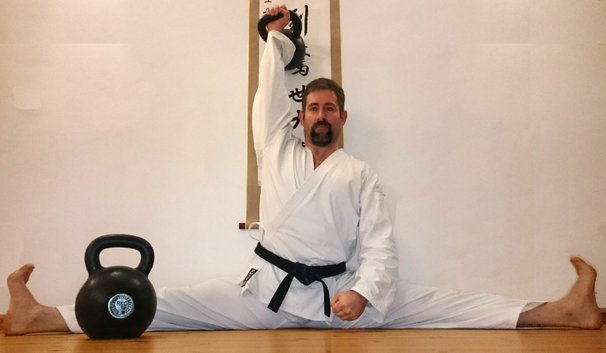
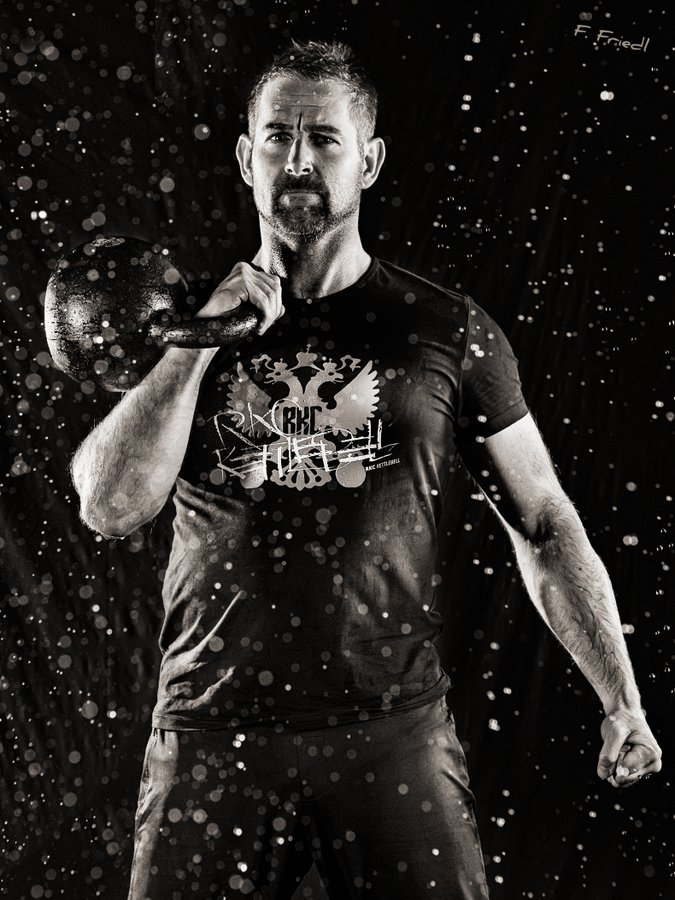

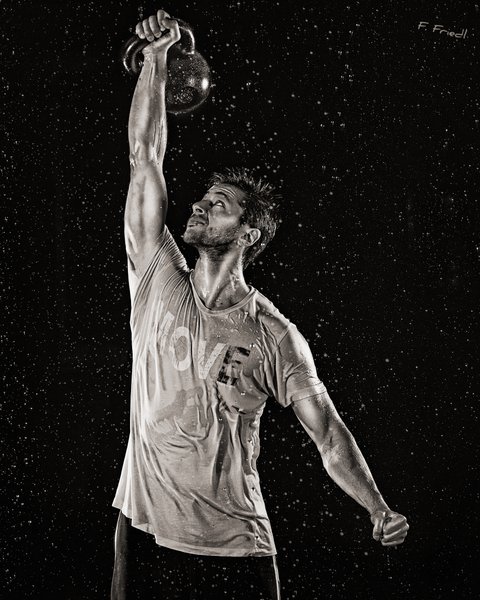
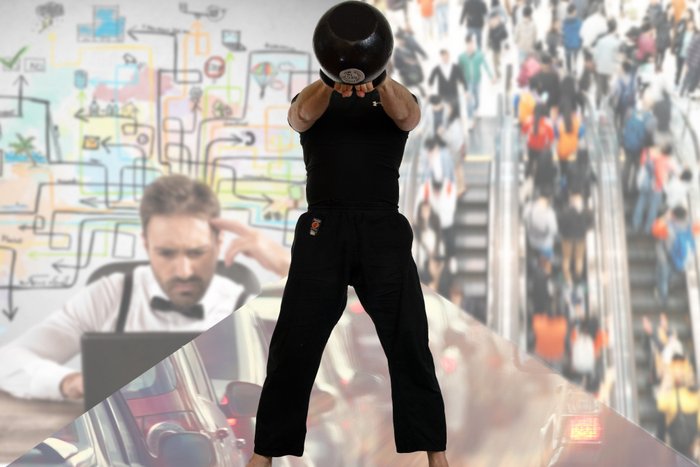
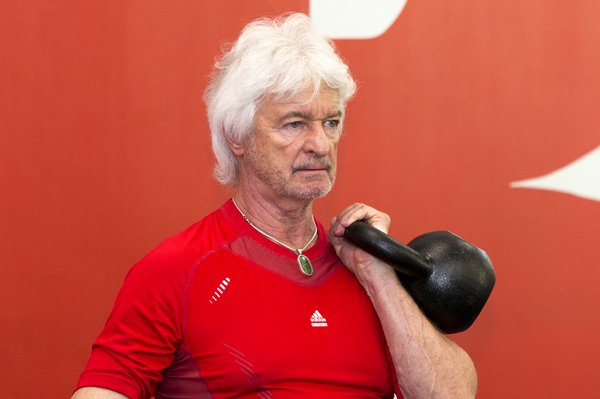
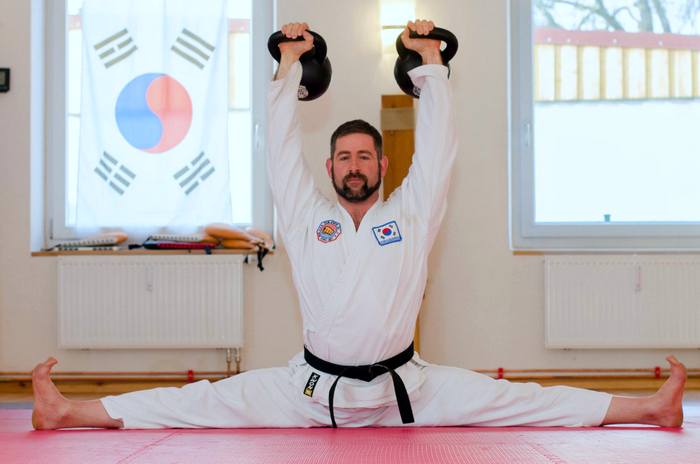
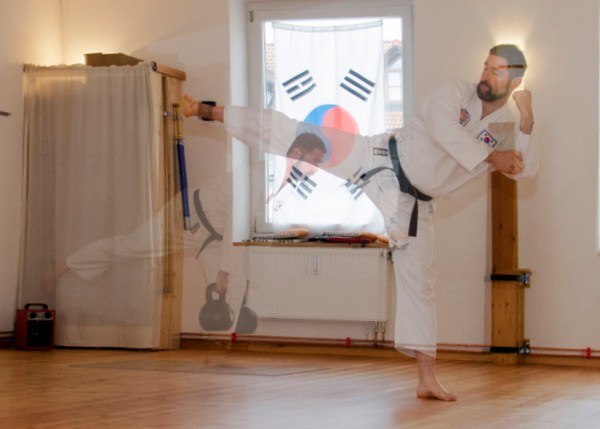
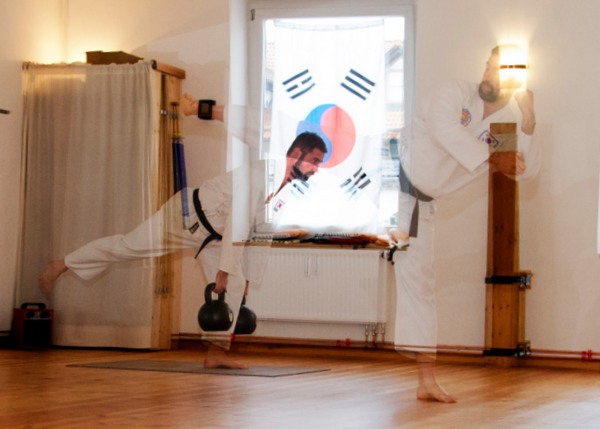
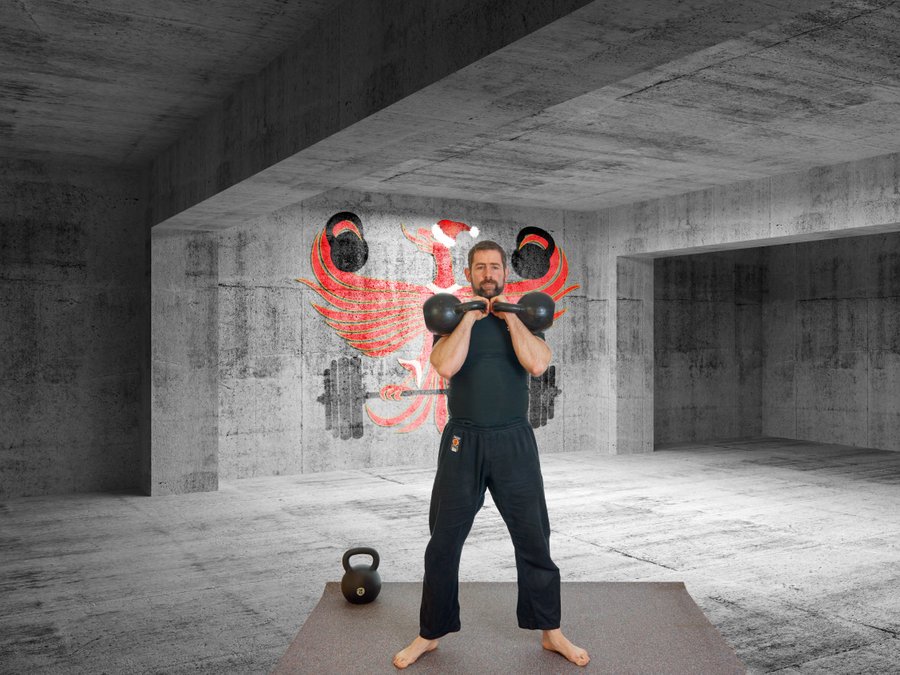
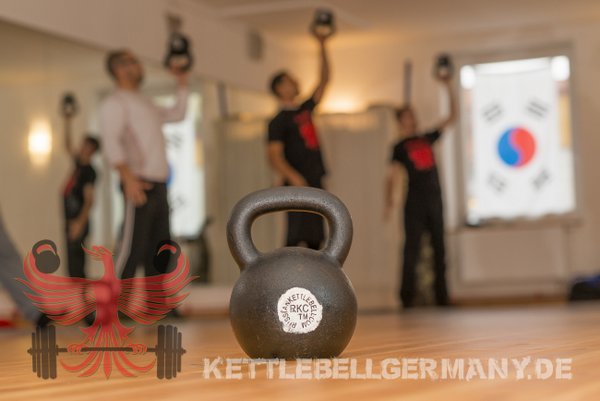
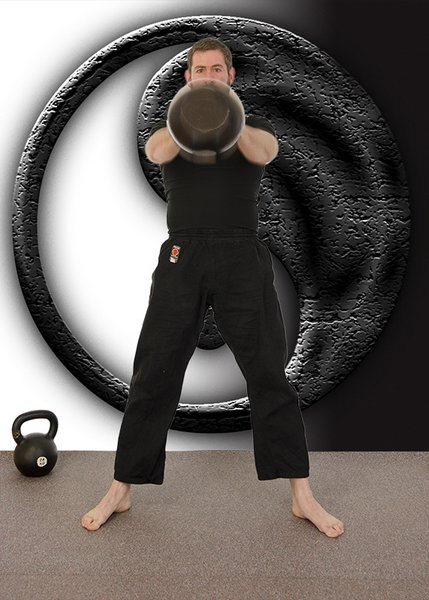 I was introduced to this term years ago when I worked as an IT Consultant for a German automotive supplier. I learned that it was this ancient Japanese concept that transformed Toyota from a small and inefficient car manufacturer into the de facto worldwide industry leader in production efficiency and accuracy. Today virtually all major car manufacturers use the Just in Time concepts invented by Toyota to produce their products. These concepts can save tons of money in production costs while maximizing quality at the same time.
I was introduced to this term years ago when I worked as an IT Consultant for a German automotive supplier. I learned that it was this ancient Japanese concept that transformed Toyota from a small and inefficient car manufacturer into the de facto worldwide industry leader in production efficiency and accuracy. Today virtually all major car manufacturers use the Just in Time concepts invented by Toyota to produce their products. These concepts can save tons of money in production costs while maximizing quality at the same time.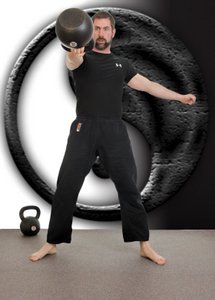 Kaizen and the Hardstyle Kettlebell
Kaizen and the Hardstyle Kettlebell